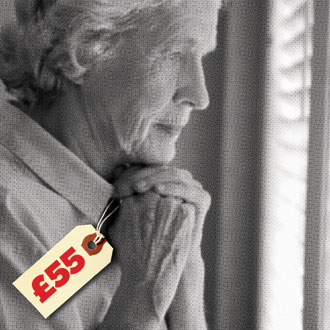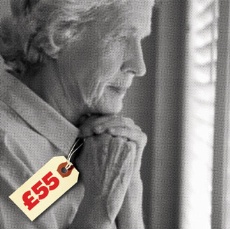GPs split over dementia diagnosis scheme


When NHS England announced it would pay GPs £55 for each additional diagnosis of dementia, it probably never imagined the widespread condemnation the idea would provoke.
Leading GPs branded the scheme – first revealed by Pulse in October – as an ‘ethical travesty’, accusing NHS England of bribing doctors in order to meet Government targets for dementia diagnoses in the run-up to the election.
Patient groups and charities, including Dementia UK, were quick to raise their own concerns, questioning whether a financial incentive is necessary for GPs to diagnose.
Practices had until 17 November to sign up – later extended by two weeks by NHS England. But Pulse can reveal that – despite concerns – a significant proportion have signed up to the scheme.
In fact, more than 40% of nearly 500 respondents to a Pulse GP survey say they have or will sign up, with some arguing that, although it is unethical, it won’t change their practice, and others saying they support it.
The national enhanced service – dubbed the ‘Dementia Identification Scheme’ – will pay GPs £55 for each additional dementia diagnosis if they show a net increase in cases recorded on their practice register between October and the end of March next year.
NHS England insists the scheme has been introduced to ensure GPs have the resources to make a diagnosis and offer patients the appropriate follow-up.
But Pulse’s survey found two-thirds of GPs (66%) believe the enhanced service is unethical, with a quarter (27%) even saying patients have raised concerns about it.
Dangerous precedent
GP critics warn the policy has ‘broken new ground in the GP contract’ and sets a ‘dangerous precedent’ in linking payments directly to diagnosis, potentially undermining the ‘basis of trust inherent in the doctor-patient relationship’.
However, many GPs say they are still taking part because they feel they cannot turn down the potential to earn much-needed practice income.
Dr Peter Swinyard, chair of the Family Doctor Association, says his practice is signing up because, despite being ‘deeply cynical’, the partners feel they have ‘to grasp every available bit of income’.
‘The public may think we diagnose something just for the money’
Dr Simon Ruffle, a GP in Reading
He says: ‘With the lack of resources coming into general practice, you have to go for every last penny which is available.
‘We’re not going to change our practice because of it. But if there are people who get diagnosed properly with dementia during that time then so be it, we will take the £55.’
Dr Simon Ruffle, a GP in Reading, agrees, saying that while the GPs in his practice are unhappy about the scheme, they did not feel able to turn down the extra money.
Dr Ruffle tells Pulse: ‘Making payments linked to diagnosing conditions in patients seems wrong and open to abuse [and] the public may think we diagnose something just for the money.’
But he adds: ‘We have signed up to the scheme as our funding is continuing to be outstripped by wages, expenses, pension and national insurance payments. Whatever little extra money we can get into the practice helps us maintain our staff welfare and wages.’
Dr Stephanie de Giorgio’s practice in Deal, Kent, is taking a different approach; it will send any payment it receives as a result of new diagnoses to a local dementia day care service.
Dr de Giorgio tells Pulse: ‘We felt the scheme was wrong, we felt it was unethical. So to make a point, we said we would sign up to it, but give away the money to where it is actually is needed – that is, in providing care and support for people with dementia and offering respite for their carers.’
But Pulse has found that some GPs believe that the payment reflects the work involved in making new diagnoses and that it is no different from being incentivised for other clinical work through the QOF, enhanced services and other policies.
Dr James Simpkin, a GP in Hove, Sussex, does not understand why the scheme has been branded unethical.
He says: ‘This payment is to try to improve diagnosis rates, help with care planning and with the extra workload patients with dementia sometimes generate. I see no difference between incentivised case-finding exercises through CCGs, some QOF areas and other [enhanced services].’
Dr Ivan Camphor, secretary of mid-Mersey LMC and a GP on the Wirral, says the scheme offers a ‘win-win scenario for everyone’.
He says: ‘I honestly don’t see a moral issue in this. The only moral issue I see is that we’re trying to help our patients with early diagnosis and providing them with appropriate information to signpost them to the appropriate services.’
Wider debate
The GPC has not so far taken a fixed stance – although negotiators stress they do not agree with the new enhanced service and were not given any say in it through the usual contractual negotiations.
Dr Richard Vautrey, GPC deputy chair, says: ‘If practices need to [sign up], I am sure they will uphold the highest professional standards when doing that and won’t be motivated by the resource issue.
‘Nevertheless, that is clouding some consultations from a patient’s perspective. Even with the best clinical judgment, these things can cause a problem from the patient’s point of view.’
Whatever GPs decide, it seems unlikely they will earn significant income from the scheme.
According to the specifications(1), practices either have to make sure patients diagnosed in hospital or a memory clinic have their patient record updated, or they can diagnose patients themselves if ‘the GP determines that it is not necessary to refer a patient with suspected dementia’.
Some may take the opportunity to audit and update records where patients who have already been diagnosed have not been coded correctly – a process that, according to one study(2), could increase the number identified by nearly 1%.
However, most areas are facing very long waiting times for memory clinics, meaning any further diagnoses that result from referrals made from now are unlikely to filter through before March.
Uncertain future
A group of more than 50 GPs, consultants and patients, led by Guildford GP and leading campaigner on over-diagnosis Dr Martin Brunet, have written an open letter to NHS England chief executive Simon Stevens and dementia czar Professor Alistair Burns, calling for the policy to be withdrawn.
NHS England refuses to cancel the existing scheme, saying it is designed to ‘support general practice’. However, chief executive Simon Stevens recently told Pulse that it was a ‘one-time’ scheme that was unlikely to be renewed next April.
Dr Vautrey says he believes NHS England will drop the scheme after all the bad publicity.
He says: ‘I think they have realised this is a bit of a silly scheme that isn’t likely to be of benefit in the future.
‘I think this is linked directly to the need for the Prime Minister to get re-elected, to fulfil one of the pledges he has made. So come next May, NHS England will probably have other priorities, whoever is running the country, and I suspect this scheme will wither as a result of that.’
However, many GPs still have concerns about the implications of the scheme for payments linked to diagnosis in the future.
RCGP chair Dr Maureen Baker says she recognises the policy of paying per diagnosis of dementia has ‘divided opinion’ among GPs and says the college is exploring the issue further in order to arrive at a consensus.
Professor Martin Marshall, who is due to stand down as the RCGP’s ethics committee chair this month after six years at the helm, and who was one of the architects of the QOF, tells Pulse his personal view is that the policy is clearly different from other incentives GPs receive, but that he hopes it will initiate a wider debate on the use of financial incentives.
Professor Marshall says: ‘There seems to me to be a significant difference between this policy and the way we have used financial incentives to modify clinical behaviours in the relatively straightforward areas of QOF.
‘It is so extreme that I hope it will trigger a debate about the risks of using financial incentives and the impact of using them on professionalism.’
References
1. NHS England. Dementia Identification Scheme. Enhanced Service Specification. 2014
2. Russell P et al. Improving the identification of people with dementia in primary care. BMJ Open 2013;3:e004023
Visit Pulse Reference for details on 140 symptoms, including easily searchable symptoms and categories, offering you a free platform to check symptoms and receive potential diagnoses during consultations.









